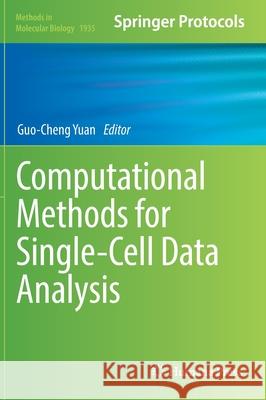Computational Methods for Single-Cell Data Analysis » książka
topmenu
Computational Methods for Single-Cell Data Analysis
ISBN-13: 9781493990566 / Angielski / Twarda / 2019 / 271 str.
Kategorie:
Kategorie BISAC:
Wydawca:
Humana Press
Seria wydawnicza:
Język:
Angielski
ISBN-13:
9781493990566
Rok wydania:
2019
Wydanie:
2019
Ilość stron:
271
Waga:
0.70 kg
Wymiary:
25.4 x 17.78 x 1.75
Oprawa:
Twarda
Wolumenów:
01
Dodatkowe informacje:
Wydanie ilustrowane











